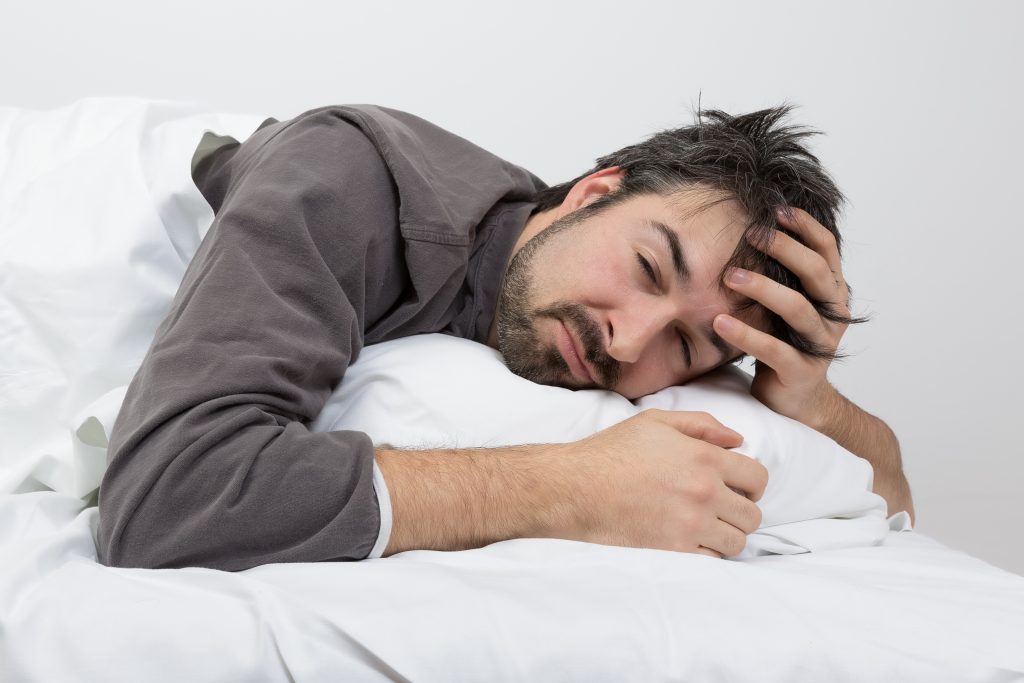In today’s workaholic society we are getting less and less sleep. Adults should aim to get 7-9 hours of sleep each night, yet most people get closer to 6-7 hours or less. Quality, restful sleep is just as important as a healthy diet and regular exercise, but sometimes it’s much harder to achieve. You might be getting yourself to bed earlier, but when your head hits the pillow your mind is still buzzing from the day. Read our tips below to help you drift off.
1. Guided Meditation and Relaxation Exercises
A guided meditation session is a great way to learn to unwind and relax after a long and stressful day. Apps like HeadSpace offer guided meditation programs, which are great for beginners who do not know where to start. Some Fitbit watches provide a guided breathing relaxation setting, which can help you to slow your heart rate and relax.
If you do not have access to guided breathing or meditation sessions, try inhaling for a count of 5, holding your breath for a count of 5, and exhaling for a count of 5. While doing this, aim to breathe deeply and focus on trying to breathe in your belly rather than shallow breaths in your chest.
Another method you can use is to contract and relax your muscles while you lie in bed. Starting from your toes, contract single groups of muscles and hold the contraction for about 5 seconds. Repeat this 3 or 4 times on each muscle group, slowly working your way up to your shoulders and neck. As you relax your muscles, you should feel heavier in each muscle group, and as a result, you feel more tired.
2. Avoiding Stimulants After Midday
This tip is fairly obvious, but something we often tend to forget about. If you find that you are unable to sleep at night and you don’t really know why you may be consuming too much caffeine late in the day. Your body can continue to feel the effects of caffeine for 4-6 hours after you consume it. Caffeine can be hidden in things like your pre-workout supplements, which means if you take it before your workout at 6pm you will still have caffeine in your system until late into the night.
Try and limit your caffeine consumption to before midday and see whether this helps you sleep better.
3. Avoid Bright Lights and Electronics
Your circadian rhythm is a biological clock which tells your body when to be awake and when to sleep. Bright lights, especially the blue light emitted from electronics, can impact your melatonin levels which will disturb your natural circadian rhythm. The lights will trick your body into thinking it needs to be awake late at night and suppress the release of melatonin, causing you to struggle to sleep even after you’ve turned out the lights.
Aim to stay off electronic devices such as your phone, iPad, computer, or TV for at least an hour before bed time, and if possible dim your lights. Some devices have a blue light filter which can be beneficial if you need to use your devices late at night.
4. Routine
Setting a strong night time routine can help you relax and settle in at night. Your routine should start at a similar time each night, and may involve a warm shower or bath, reading a book with dimmed lights, and then sleeping after half an hour. Find whatever routine works for you, and try to stick to it each night in order to have an easier time falling asleep. Your circadian rhythm (yes, that biological clock!) will begin to adapt to this schedule, meaning you will eventually find yourself getting tired at a regular time each night.
5. Distraction and White Noise
Sometimes you just simply can’t follow the tips above. Maybe you had to stay back at work, or met with a friend for coffee in the afternoon. Or maybe your mind is just buzzing from the day and you can’t switch off and relax.
I personally find rain noises (particularly storm noises) relax me and help drown out any thoughts that are keeping me awake. White noise or classical music may also work to relax you and allow you to stop stressing. There are many apps you can download, and some even come with timers which will turn off the sounds after a certain time period.
Sometimes it can be stressful when you’re trying to sleep but you can’t, and you know you have to wake up in 7 hours, now 6 hours and 59 minutes, 6 hours and 58 minutes… Distraction methods such as recalling some of your favourite memories or holidays, your favourite movie, or even counting sheep (as corny as it sounds, it can work), may help to take your mind off the fact that you need to be sleeping and help you drift off.
If you feel like you’ve tried everything and still can’t sleep, it might be time to see a health professional. A doctor will be able to work out whether there is a medical condition underlying your insomnia and go through treatment options or referrals which will work for you.
Emily Metcalf


